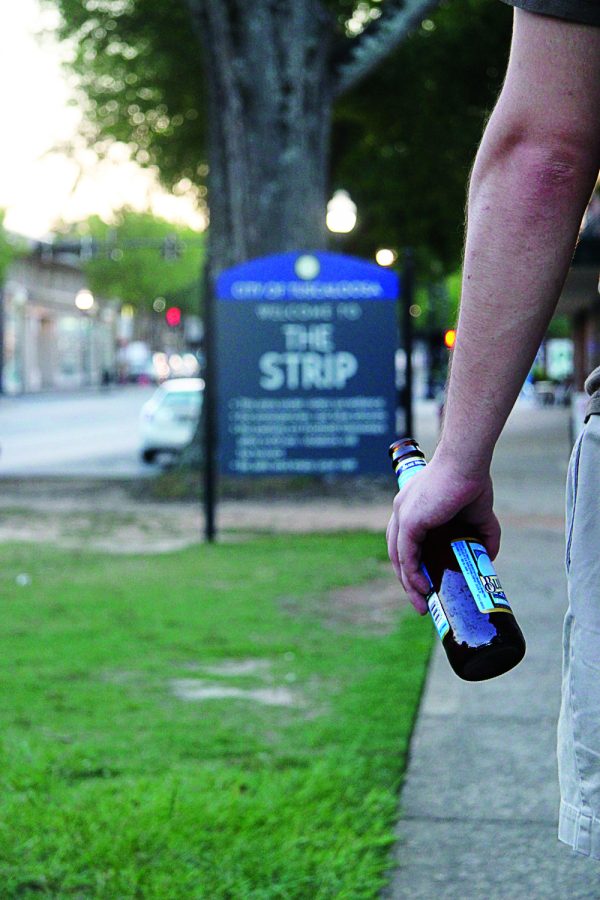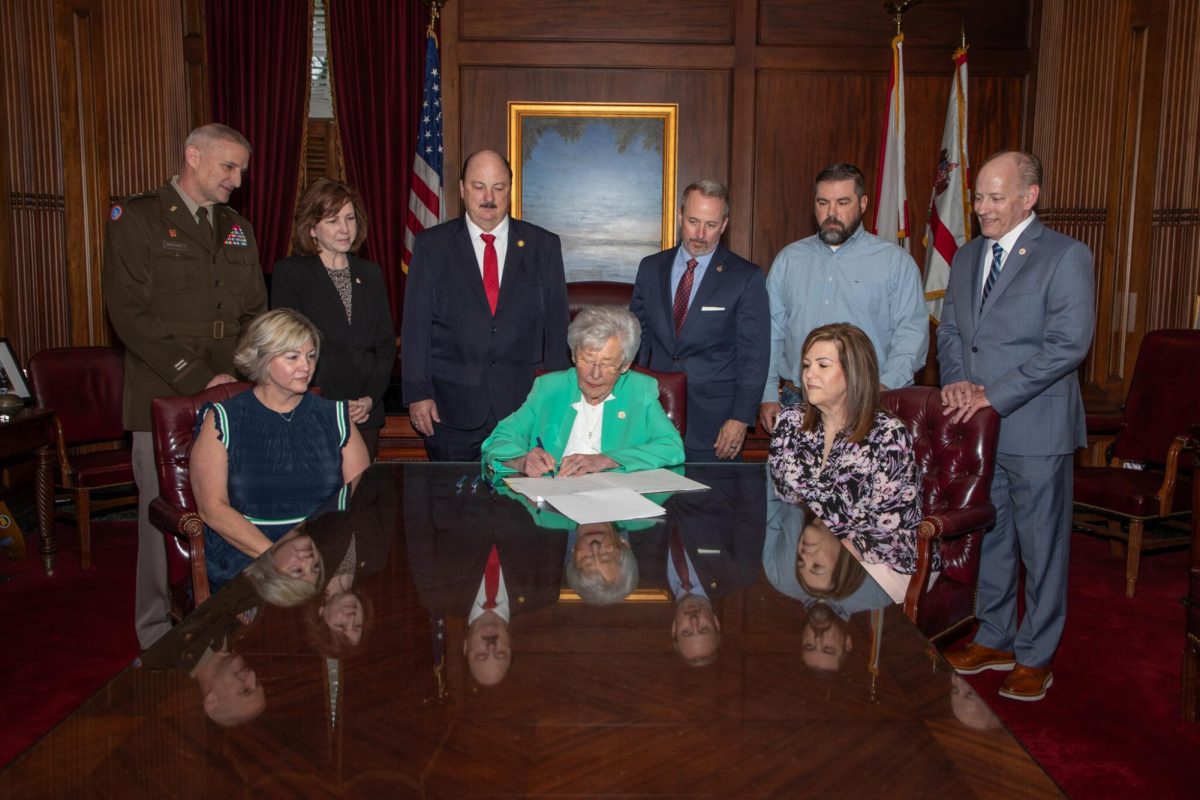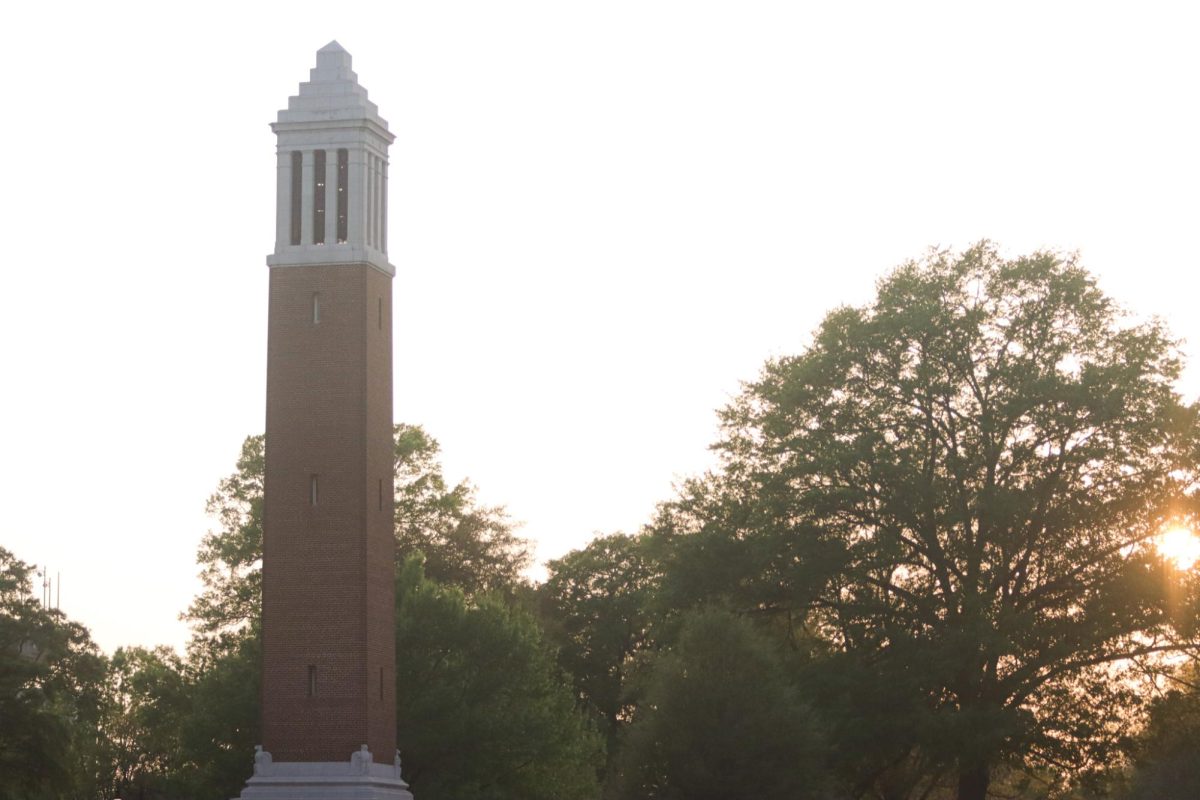The streets of Tuscaloosa may soon look like famed Bourbon Street in New Orleans or Memphis’ bluesy Beale Street.
This change would be a part of the city’s rezoning of specific areas as entertainment districts, spurred by a new law enacted by the Alabama Legislature this year to allow cities a certain number of these districts proportional to the city’s classification. The new districts would allow patrons of local restaurants and bars to roam freely within the designated area with open containers of alcohol.
Prompted by Mobile’s adoption of the law that piqued interest within Tuscaloosa’s own entertainment industry, the city council’s Public Safety Committee is organizing a sub-committee to look into the benefits and downfalls in adopting these new zones.
“We are taking applicants now, and on July 17, we plan to announce the members [of the sub-committee],” said councilman Kip Tyner, who also serves on the Public Safety Committee. “We’ve already gotten a great response. Of course we have our usual suspects — council members, police, fire, revenue, transportation, city attorney’s office. But for it to work, we need to have representation from the entertainment industry. I want to see at least a 50 percent partnership.”
According to the law, Tuscaloosa is allowed up to two entertainment zones, which can cover up to a half-mile by half-mile area.
Tyner said the sub-committee will first look into two major locations for this development — downtown, stretching from the Bama Theatre to the Tuscaloosa Amphitheater and the bar 4th and 23rd, and the Strip. He added he hopes to also include a university representative on the sub-committee, as one potential district would border University property.
Senior Associate City Attorney Jimbo Woodson explained that although the law would allow patrons to leave alcohol licensees with an open container within the district, they would not be able to bring open containers into the district from the outside.
“The sub-committee will consider things such as the rules, location, time, days that the district would be,” Woodson said. “They will think of ideas like no bottles being taken out and placing leftover drinks in identifiable containers with the bar’s logo on it.”
The change could come just in time for the first home football game this fall – Sept. 8 versus Western Kentucky – according to Woodson. He said much of the interest is for football game weekends.
“It would be like gameday but everyday,” Tyner said. “You would be able to walk around with a drink in your hand and go freely from one place to another. It relaxes things somewhat, but there are also issues that we need to work out.”
Although some bar and restaurant owners have shown interest in the establishment of these districts, others have mixed feelings about it.
Jeremiah Jones, owner of Jupiter on the Strip, is interested in the consideration of the law, but he believes there needs to be strict rules for the areas.
“For the city to recognize and make special laws for places that are already perceived as ‘entertainment districts,’ I think is a good thing,” Jones said. “But if the law includes open containers, safer safety measures are needed.”
Jones suggested creating a safer environment with the new zones, such as only having the districts on special occasions – Halloween and St. Patrick’s Day – or blocking off traffic on the Strip.
“[The zones] would definitely make security’s job easier from an enforcement standpoint, but I don’t want people to leave the bar with a drink in their hand and walk into traffic,” Jones said.
However, Tyner said although that is something that should be considered, the districts probably won’t be much different than they are currently, where people leave bars intoxicated and must still watch out for traffic. He added the same laws will still apply in the area as well, such as public intoxication and underage drinking.
The main issue Jones sees is a potential for a decreased customer base. “The thing I dislike is if someone takes a drink from one bar and into another, that’s one less drink that I’m going to sell,” he said.
The Public Safety subcommittee will analyze all of the factors that will affect the entertainment districts, so the change would not have a dramatic effect on student or residential life, Woodson said.
Tyner agrees, adding that having a sub-committee allows for transformation.
“We can make the districts be whatever we want them to be,” he said.










